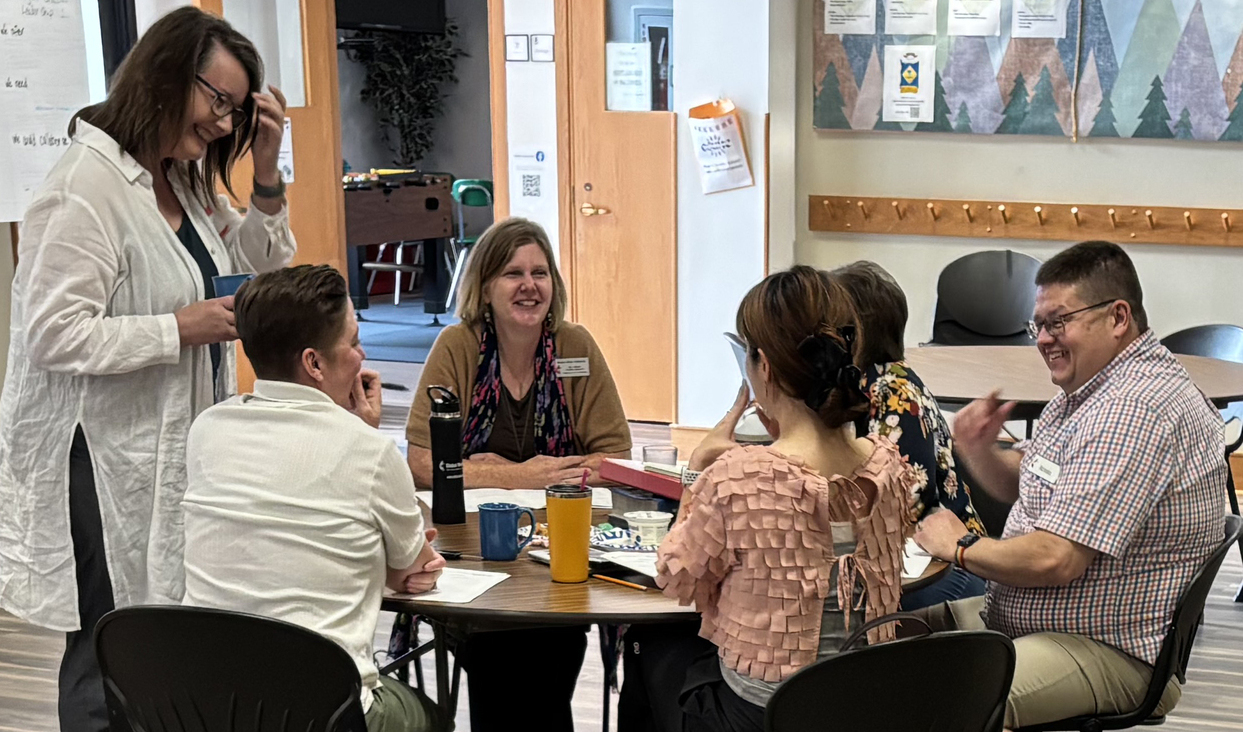Bishop’s Appeal: Education for the Central Conferences
This year, Northern Illinois United Methodists will be donating to one Bishop’s Appeal for two worthy recipients. The appeal for Education for the Central Conferences wi…
Cross-cultural relationships require intentional, invitational listening skills and honest personal statements, Annual Conference and District Shepherding team members learned at the meeting on Aug. 16 in Schaumburg.
Northern Illinois is a culturally and racially diverse conference. In a nation where racism and discrimination continue, NIC is in a special position to witness to healthy relationships across race and culture.
Facilitating the meeting was Julie Boleyn, executive director of the Kaleidoscope Institute, which trains leaders to create gracious space for courageous conversations and consulting to heal and transform organizations. Their focus is cross-cultural relationships.

ASCT members energetically discussed proposals for ministries the team could lead.
Members learned a number of practices designed to help people listen carefully and with empathy, and to speak respectfully and honestly. These include RESPECT guidelines, Mutual Invitation conversation, the “Holy Currencies,” Bible Sharing, Creating a “Grace Margin,” and Gracious Invitations.
These also help well-meaning churches to prevent their ministry from becoming patronizing. Boleyn gave an example of a church that wanted to help youth. Their neighborhood had low graduation rates.
“First, they wanted to give the schools a monetary gift,” Boleyn said. “But when they asked the school, the youth most wanted meaningful relationships with adults.
“Youth were not going to come to the church basement for youth group,” Boleyn said.
Therefore, church people went to the school to learn ways to get to know the students and vice-versa. Students and church people discussed some given questions together.
“Youth started to come to the church for specific things,” Boleyn explained. “They initiated reasons to come to the church, use certain resources for their plans to reach out to their neighbors.
“We can make the circle wider when we think we don’t have enough,” she said, underscoring the importance of relationships.
Sometimes people may not feel safe in a group where they feel different from most others. This is where groups can create “a grace margin between a safe zone and a fear zone. This entails toning down things that may make some people feel small or afraid. At the same time, if we become too comfortable we probably won’t change.
The team members engaged in these practices and started to identify ways that the ACST and DSTs can offer healthy guidance to the conference and its churches. These included clarifying the purpose of the ACST even more and leading the habit of sabbath-taking as a spiritual discipline.
This year, Northern Illinois United Methodists will be donating to one Bishop’s Appeal for two worthy recipients. The appeal for Education for the Central Conferences wi…
Rev. Donna Atkinson, a retired member of the Northern Illinois Conference, passed away on January 24, 2026.
Thank you for your commitment to sharing your gifts for the good of our United Methodist Church and its ministries. In 2025, you gave $5,056,797—80 percent of our budgeted…
The Northern Illinois Annual Conference, with United Methodist Communications, is excited to launch the #BeUMC Awards! Celebrate laypeople, clergy, and congregations who love boldly, serve joyfully…